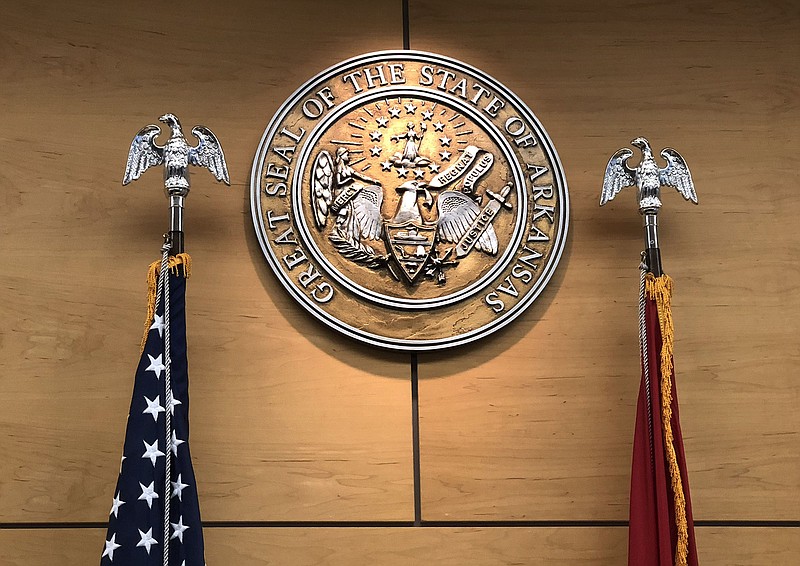A Conway lawyer who has been testing the limits of Arkansas' concealed-carry law has filed his fourth lawsuit over being refused entry with his weapon to a publicly owned building.
This time, it is the Pulaski County Courthouse. Chris Corbitt, an enhanced-permit concealed-carry license holder, has also filed three other lawsuits -- one close to resolution and two on appeal -- after being turned away from a Game and Fish Commission shooting range, Little Rock City Hall and the county's district courthouse.
Corbitt, with co-counsel Robert Steinbuch, a Little Rock law school professor, claims that by refusing him entry with his gun, authorities are violating his civil rights and state constitutional protections granted to firearm holders.
Like his lawsuit over the district courthouse, filed in January 2020, Corbitt's new suit names County Judge Barry Hyde and Sheriff Eric Higgins as defendants. It also includes Circuit Judge Tim Fox, whose courtroom was Corbitt's destination on an Oct. 3 trip to the courthouse.
The suits are further similar in that they claim the state's concealed-carry statute, Arkansas Code 5-73-122, as expanded by the Legislature in 2017, allows "an officer of the court" to bring a weapon into the court.
The seven-page suit filed Monday notes that Arkansas lawyers are defined as officers of the court in the state's Rules of Professional Conduct and that the U.S. Supreme Court has recognized attorneys as such since at least 1978.
The argument was not persuasive to Pulaski County Circuit Judge Herb Wright, who sided with the county defendants in the district courtroom case by ruling that the way the law is written, the presiding judge of the court gets to decide who can bring in a gun.
"To read the statute as plaintiff suggests would require a reading that the legislature has superior authority to a court to conduct its proceedings, which is a violation of the separation-of-powers doctrine," Wright wrote in a three-page holding in June. "As defendants point out, the Court must avoid an unconstitutional reading of a statute. Reading it as Defendants suggest is the only such possible constitutional reading."
The judge also rejected arguments that Corbitt's rights had been violated, finding Corbitt's interpretation of the revised concealed-carry law to be incorrect.
"No new rights were created by this statute. It only codifies what has long been the rule that the only parties who may enter the courthouse or courtroom carrying a weapon are those who the court specifically authorizes," the judge stated.
The latest lawsuit targets Fox, the presiding judge, over a sign he posted at his courtroom door that warns guns are prohibited.
The sign states that bringing a gun into the courtroom without permission is a felony offense with the exception of law enforcement officers or bailiffs acting in the line of duty. Further, violators will be found in contempt and jailed immediately for at least two months, according to the notice.
Corbitt's suit says the sign is an "intentional manipulation of the statute's language, thereby demonstrating an understanding of the law and a conscious intent to avoid the law."
Corbitt further claims that Fox misstates the penalties for having a gun in court as a felony when it's actually a Class C misdemeanor, roughly the equivalent of a speeding ticket.
"As shown, Judge Fox's sign falsely claims that the violation is a felony -- again, demonstrating an intentional manipulation of the plain language of the statute," the suit states. "Judge Fox is not free to rewrite the law for his own purposes, nor is he entitled to 'deem guilty' anyone who obeys the law."
The lawsuit is assigned to Circuit Judge Chip Welch. Welch has previously ruled against Corbitt in his lawsuit against the city of Little Rock over its gun ban at City Hall. The Supreme Court declined to get involved on procedural grounds with Welch set to hear final arguments next week.
